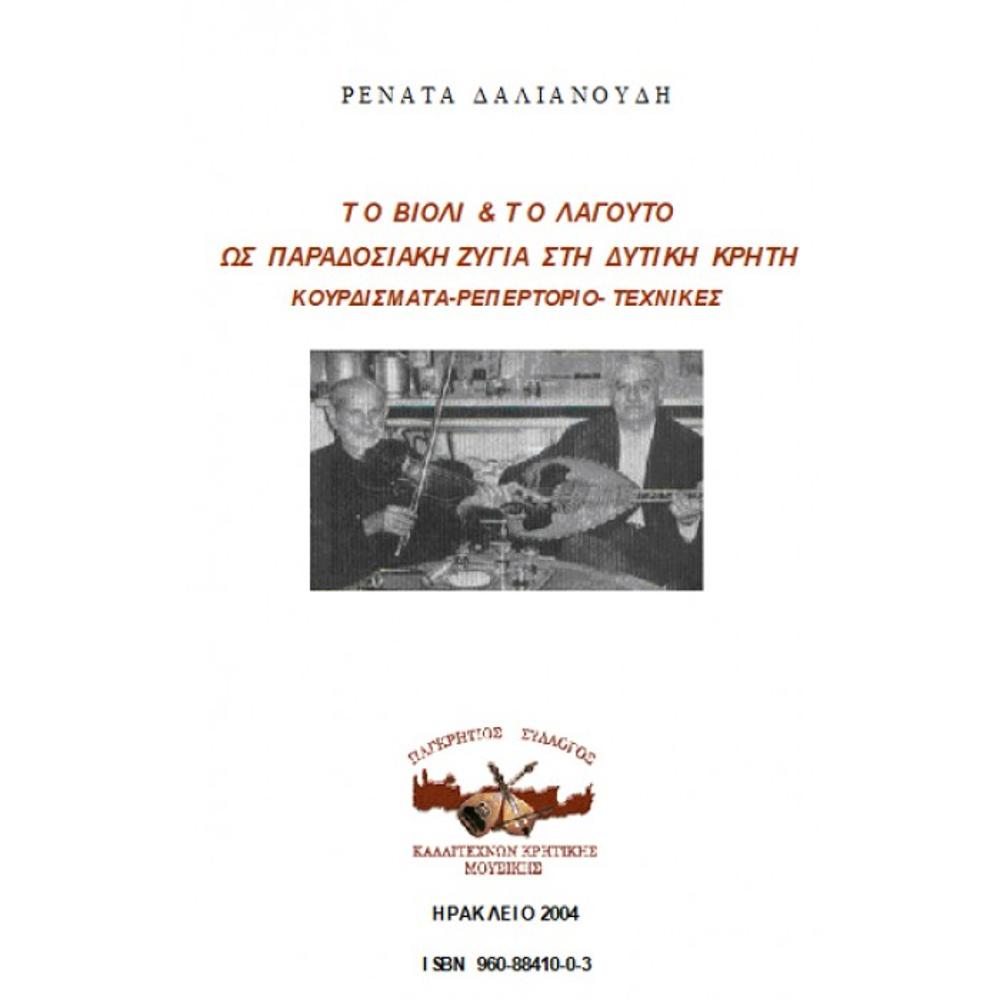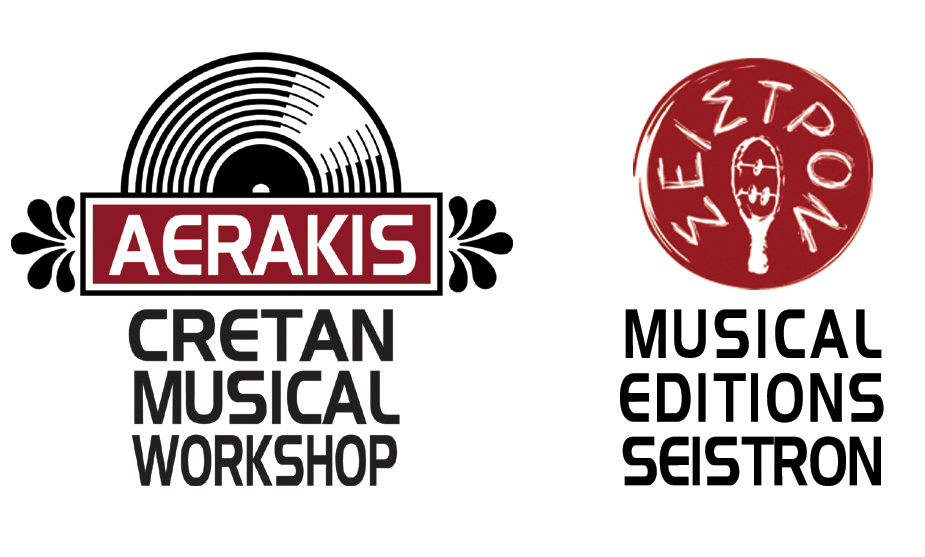These are two monographs of ethnomusicological content, fruits of the ethnographic research of Renata Dalianoudi, Ethnomusicologist, Assistant Professor at the Department. Of History & Archeology, at the University of Ioannina, in the framework of the Research Program "THALITAS" (under the auspices of the Institute of Technology and Research (ITE) / of the Institute of Mediterranean Studies (IMS) and the University of Athens, 1998-2003) and her personal autonomous field research in Crete, conversing and recording local experiential musicians. The monographs record in detail (in pentagram and tablature) the ala franga and the ala turca, the European and local, the old and the new tunes of the traditional scales: violin and lute in Western Crete and violin and guitar in Eastern Crete, together with the combined local old and new repertoire. It also describes the way & technique of playing traditional organ players and the "teasing", ie the conversions that practical musicians make to musical instruments for audio reasons either during the manufacturing process or during use. In all the thematic units, musicological explanations are given and useful historical references are made. Detailed bibliography and discography are provided at the end of each book. The aim of the books is the official recording and rescue of a total of fourteen (14) tunes, which were and / or are in use in Eastern and Western Crete, as well as the acquaintance of teachers & trainees (pupils, students and any other interested party) with the musical culture of Crete. Characteristics: 1. Each book begins with a general theory of Cretan traditional music for a better understanding of the Cretan local tradition. 2. Each book is divided into 4 thematic sections that cover the whole range of use and operation of the instrument (theoretical and practical part): a) the book traditional scales of Western Crete (violin-lute) is divided into: - Tuning - Technique-Ways of playing - "Teasing" of instruments - Making unusual instruments b) the book traditional scales of Eastern Crete (violin-guitar) is divided into: - Tuning - Technique-Ways of playing - "Teasing" of instruments - Mantinades, as musical-poetic forms 3. Old and new tunes are recorded in 3 different ways: a) on the staff (for a better understanding of those who know how to read music) b) in the plan-layout of the "hand" of the instrument with the notes written on each string (for a more illustrative description) c) the detailed drawing plan of the "hand" of the instrument (keyboard) showing the way of tuning on a tablature (useful for practical musicians and for students who wish to apply tuning) 4. Each tuning is accompanied by information about the combined local repertoire, the combined scales and chords and musicological explanations are given. 5. Detailed bibliography and discography are provided at the end of each book.


